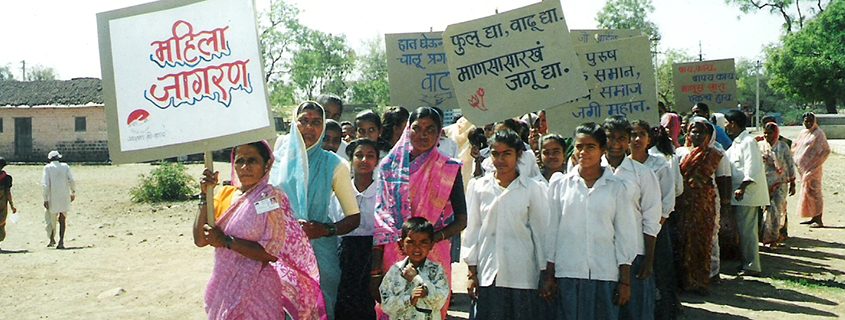Self-Help Groups
In July 1999, ANK began to organize women into the micro-credit model of savings and loan collectives called Self-Help Groups (SHGs). ANK has established over 125 SHGs in its 10 villages, which today, village women successfully run and manage entirely on their own.
Individual members in groups that have been in existence for over five years have saved on average Rs 15,000-25,000 – a significant amount for rural women. They also run diary cooperatives and manage backyard poultries. The two dairy cooperatives that have been set up each earn Rs. 300,000 to Rs. 400,000 per month.
The SHGs act as the backbone for the majority of ANK activities. Besides providing a platform for economic empowerment, they act as a pivotal place for social justice to occur. Women, who had hitherto never left the four walls of their homes except to fetch water, have suddenly realized their strength in unity. They band together to solve the problems of their village, whether it is banning the sale of illicit liquor in the village, the poor quality of the school’s midday meal, absentee teachers or even infrastructural problems like water shortages and bad roads.
In order to give village women a space they can call their own, ANK has built four women’s centers – in the villages of Nimgaon Bhogi, Dhok Sanghvi, Sone Sanghvi and Khandale where Self-Help Group and Kishori Mandal meetings as well as workshops are held.
After years of dedicated effort, ANK is finally beginning to see some of the fruits of its labor.
In January 2004, women of Karajawane village threatened to go on a hunger strike unless the water project promised to their village years ago was implemented.
In September 2005, ANK helped women in Khandale village convict two male rapists, a case that would have never been pursued previously.
Voices of village women that were once passive have now become vocal. These voices continue to grow and be heard as younger generations of women become change makers and active partners in their own development, realizing even more, the importance of education, literacy and financial independence as the means to empowerment.



